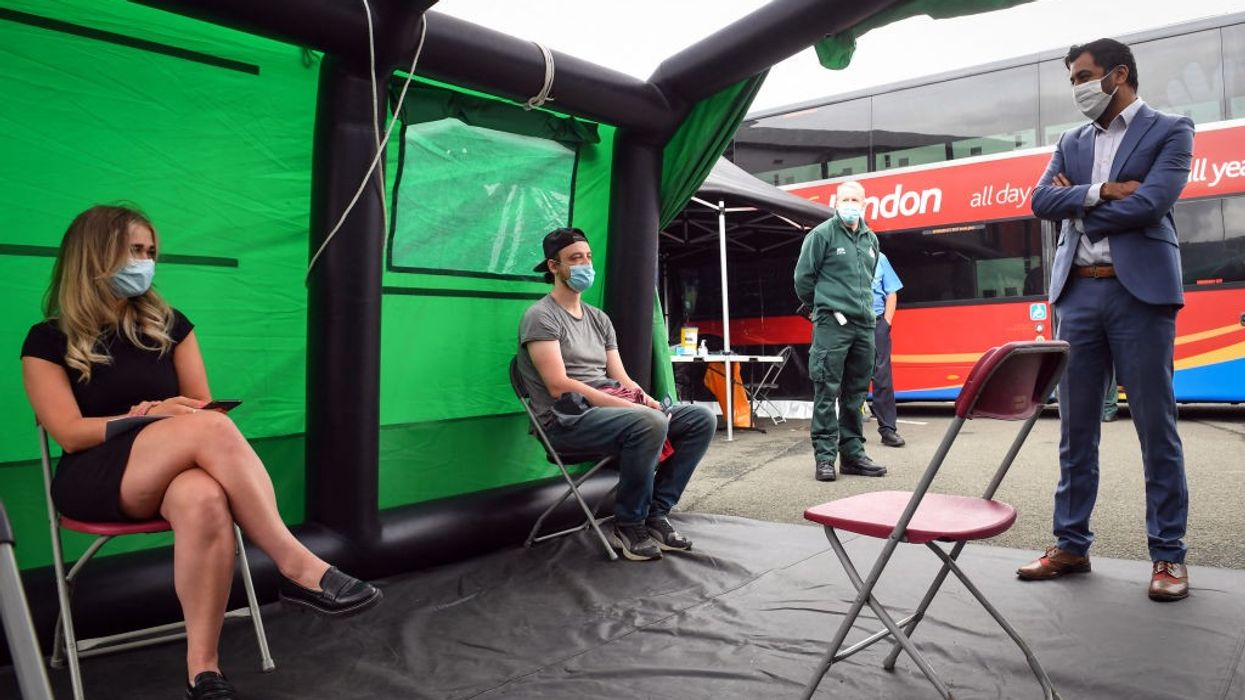A Scottish study has revealed that people advised to shield in the first wave of the pandemic were five times more likely to die from Covid-19 than those considered at low risk from the disease, the Guardian reported.
The study, led by the University of Glasgow, has found that shielding could not prevent the most vulnerable from substantial levels of infection, with many patients succumbing to the virus.
In the UK, people who were deemed to be clinically extremely vulnerable to Covid were advised to stay at home, or shield, when case numbers were high.
The report revealed that measures to reduce transmission in the community and Covid-safe support at home were crucial for those most vulnerable to the disease.
“The only way you can protect these people is by stopping them getting infected in the first place because they are such a high-risk group,” Prof Jill Pell, the director of the University of Glasgow’s Institute of Health and Wellbeing, told the Guardian.
“You cannot simply dump the responsibility on high-risk people to protect themselves because, as we’ve shown, they cannot protect themselves 100 per cent.”
Pell and her colleagues analysed data from more than 1.3 million people registered with GPs in NHS Greater Glasgow and Clyde between March and May 2020.
The majority, 934,239, were considered at low risk from Covid, while 353,085 were at medium risk due to conditions such as diabetes and high blood pressure. A further 27,747 were advised to shield because of serious health issues that put them at highest risk.
Those asked to shield were eight times more likely to have a confirmed Covid infection than those at low risk.
While testing rates were 10 times higher in the shielded group than in the low-risk group, many tests in the first wave were ordered only when people displayed symptoms. Those at medium risk had four times more confirmed infections than the low-risk individuals, the study said.
The researchers have found 140 deaths (0.51 per cent) among the shielded people, 803 deaths (0.23 per cent) in the medium-risk group, and 84 deaths (0.01 per cent) in those at low risk from the disease.
According to the findings, shielding could not prevent the NHS from becoming overwhelmed.
“You would have to roll out shielding to about a third of the population to really impact on NHS burden and that isn’t feasible to do,” said Pell.
“We don’t know what would have happened to these people if they hadn’t been advised to shield, but the bottom line is that it certainly didn’t prevent them from having adverse outcomes."
A Scottish government spokesperson said: “We are confident the shielding programme helped vulnerable people who were at risk of Covid at that time.
“This study is limited to one geographical area and doesn’t take into account a range of factors including ethnicity, rurality, exposure to health and social care workers, and compliance with restrictions. It also highlights that the findings are representative of Glasgow and Greater Clyde area but may be less so for other areas.”





